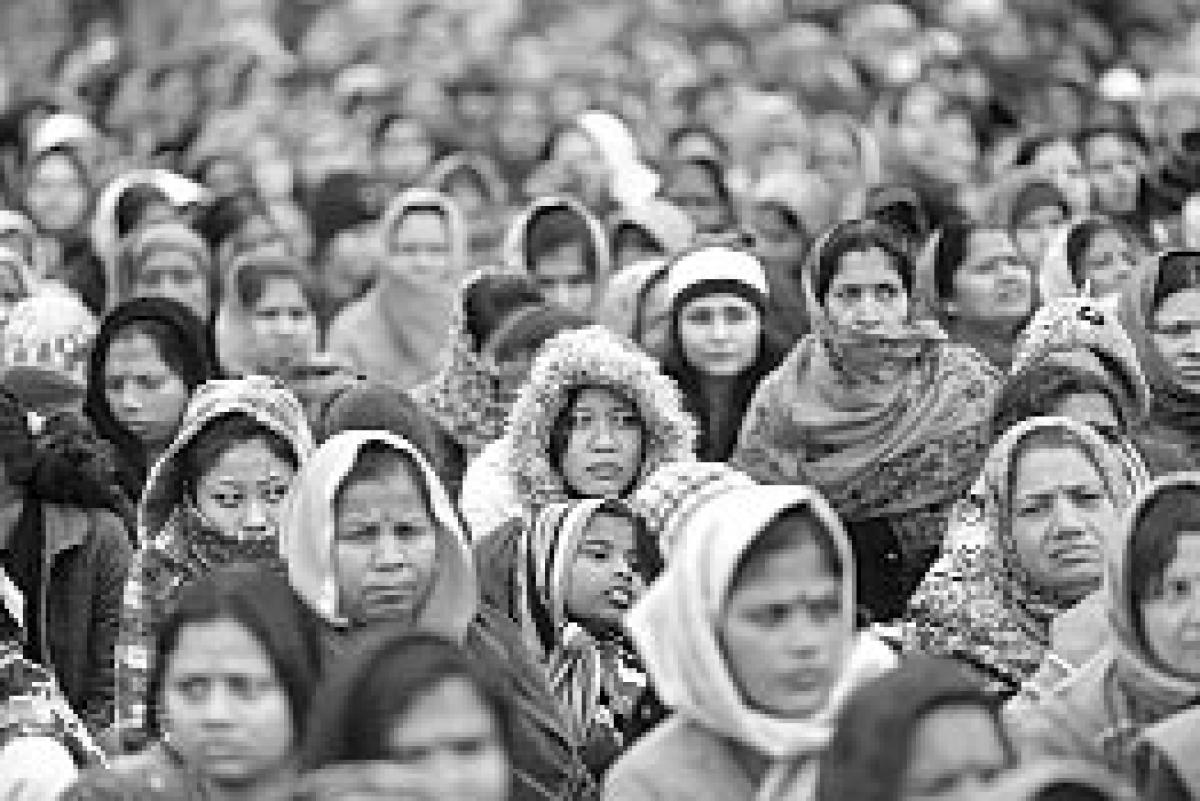Live
- Chanchalguda Jail Officials Say They Haven't Received Bail Papers Yet, Allu Arjun May Stay in Jail Tonight
- BJP leaders present evidence of illegal voters in Delhi, urge EC for swift action
- Exams will not be cancelled: BPSC chairman
- Nagesh Trophy: Karnataka, T.N win in Group A; Bihar, Rajasthan triumph in Group B
- YS Jagan condemns the arrest of Allu Arjun
- Economic and digital corridors to maritime connectivity, India and Italy building vision for future, says Italian Ambassador
- SMAT 2024: Patidar's heroics guide Madhya Pradesh to final after 13 years
- CCPA issues notices to 17 entities for violating direct selling rules
- Mamata expresses satisfaction over speedy conviction in minor girl rape-murder case
- Transparent Survey Process for Indiramma Housing Scheme Directed by District Collector
Just In

It included, participation of women in decision-making bodies, strengthening of the legal system to eliminate all forms of discriminations against them and maintaining gender perspective in the development process. The government followed up with action.
Amidst increasing cases of violence against women along-with growing demand for gender equality and justice by women’s groups, the Draft National Policy for Women was released by Union Women and Child Development Minister Maneka Gandhi for public comments last month.
No doubt, in the last four decades since the First National Commission for Women, drastic changes have occurred in our perception of women’s status in the society. Recall, the 2001 draft called the National Policy for Empowerment of Women laid down a comprehensive policy for advancement, development, and empowerment of women with appropriate operational strategies.
It included, participation of women in decision-making bodies, strengthening of the legal system to eliminate all forms of discriminations against them and maintaining gender perspective in the development process. The government followed up with action.
However as global changes in technology and information system have revolutionised life including that of the home-bound Indian women in the last 15 years it has shaken their everyday life in multiple ways.
A fresh look into their status vis-à-vis the changes occurring around them is imperative to make adjustments and take corrective measures so that women are not left behind to remain content with their position silently.
Instead of a welfare-oriented approach pursued so far, the new Policy offers a “rights-based approach”. In practice it underscores that women are no longer to be treated as simply objects for sympathy and care, but as citizens with inalienable Constitutional rights.
Thus, the focus shifts from “entitlements to rights” and women should be in a position to influence the direction of social change through participation in the social, economic and political spheres of life.
The focus also moves from “empowerment to creating an enabling environment”, which is a step forward in promoting self-confidence among women in an equalitarian atmosphere.
The Policy’s salient features include essential basics like health, education, employment opportunities and skill development of all women.
Alongside, develop a framework to ensure equal rights and opportunities for women thereby creating a society with women working as equal partners in all spheres of life.
True, these are old ideas but they need concrete action programmes based on review from time to time.
Additionally, the Policy aims at addressing all forms of violence against women, improving the child sex-ratio and preventing trafficking at source. Arguably, why can’t they be addressed under existing laws and administration? That we still need a special policy to deal with these issues only shows the presence of irremovable obstacles in enforcing the policy against settled practices.
Also noteworthy is inclusion of criminalization of marital rape in the Draft.
Interestingly, the Muslim Personal Law is keen on fighting for Muslim women’s Constitutional rights, yet ignores the plurality of customary laws which make life miserable for women in the majoritarian group.
Widows’ plight, child marriage, harassment for dowry, denial of property rights and financial freedom still continue with open connivance of illegal organisations like Khap Panchayats.
Hence, we need a policy to spread legal knowledge and practical lessons to change our mindset. In sum, changes have to start within the household as social taboos and economic disparities start at home and must be fought at the root to free women from all kinds of discriminations.
By Dr S Saraswathi

© 2024 Hyderabad Media House Limited/The Hans India. All rights reserved. Powered by hocalwire.com







